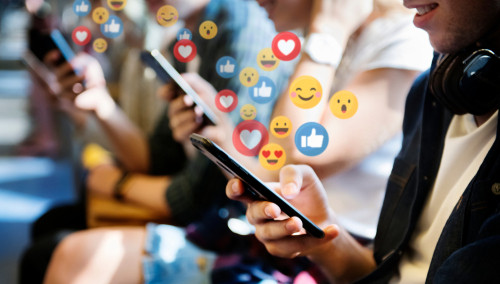A month after Ofsted, the schools regulator, released a rapid report highlighting that young people are exposed to unwanted sexual content and behaviours by their peers, a research study by the University of Salford aims to explore how young people utilise social media and influencers to find advice and information about relationships, sex and sexual health.
As the COVID-19 pandemic has brought to public attention, not all sources of health information on social media and the internet may be trustworthy.
“Since the pandemic started there has been a renewed interest from researchers around the globe in understanding how health messages have been shared through social media, and some social media platforms have started sharing approved COVID-19 safety guidance under content related to COVID-19 to stop the spread of misinformation” said researcher Lisa Garwood-Cross, of the University of Salford.
The University of Salford research team aims to understand how young people utilise social media in finding and sharing information about relationships and sex and if they trust social media influencers. The study intends to inform public health organisations on making use of existing relationships between 13 – 24 year-olds and sex education influencers to improve the resources relevant to this age group.
“Relationships and Sex Education has a vital role to play in preparing young people for mentally and physically healthy sexual and emotional relationships, understanding how they self-educate through social media is a valuable way of understanding how new technologies can be used to fill gaps in our current sex education provision.” Explained Garwood-Cross.
The study aims to extend knowledge and understanding presented in the Ofsted report, which gathered data from 13 – 18 year-olds in 33 schools and colleges in the UK, asking them if different types of unwanted sexual behaviour happened ‘a lot’ or ‘sometimes’ between people their age. Some key findings from the report were:
- 64% of girls and 24% of boys reported that unwanted touching happened ‘a lot’ or ‘sometimes’ between people their age
- 68% of girls and 27% of boys expressed that feeling pressured to do sexual things they did not want to, happened ‘a lot’ or ‘sometimes’.
- 88% of girls and nearly 49% of boys identified that being sent sexual pictures or videos they did not want to see happened ‘a lot’ or ‘sometimes’ between people their age.
- 80% of girls and 40% of boys expressed that being put under pressure to provide sexual images of themselves was common.
The report also raised concerns of the taking and circulation of photographic or video content between young people without consent.
Due to this young people had little positive to say about their experiences of Relationships and Sex Education, as the report states “They felt that it was too little, too late and that the curriculum was not equipping them with the information and advice they needed to navigate the reality of their lives. Because of these gaps, they told us they turned to social media or their peers to educate each other, which understandably made some feel resentful.”
“This study hopes to discover young people’s sexual health information seeking habits on social media to understand how resources can be developed to better support them.” Garwood-Cross added.
The research is currently open to 13 – 24 year olds to give their views via a short 10 minute survey;
13 to 18 year olds can participate by clicking here
19 to 24 year olds can participate by clicking here







